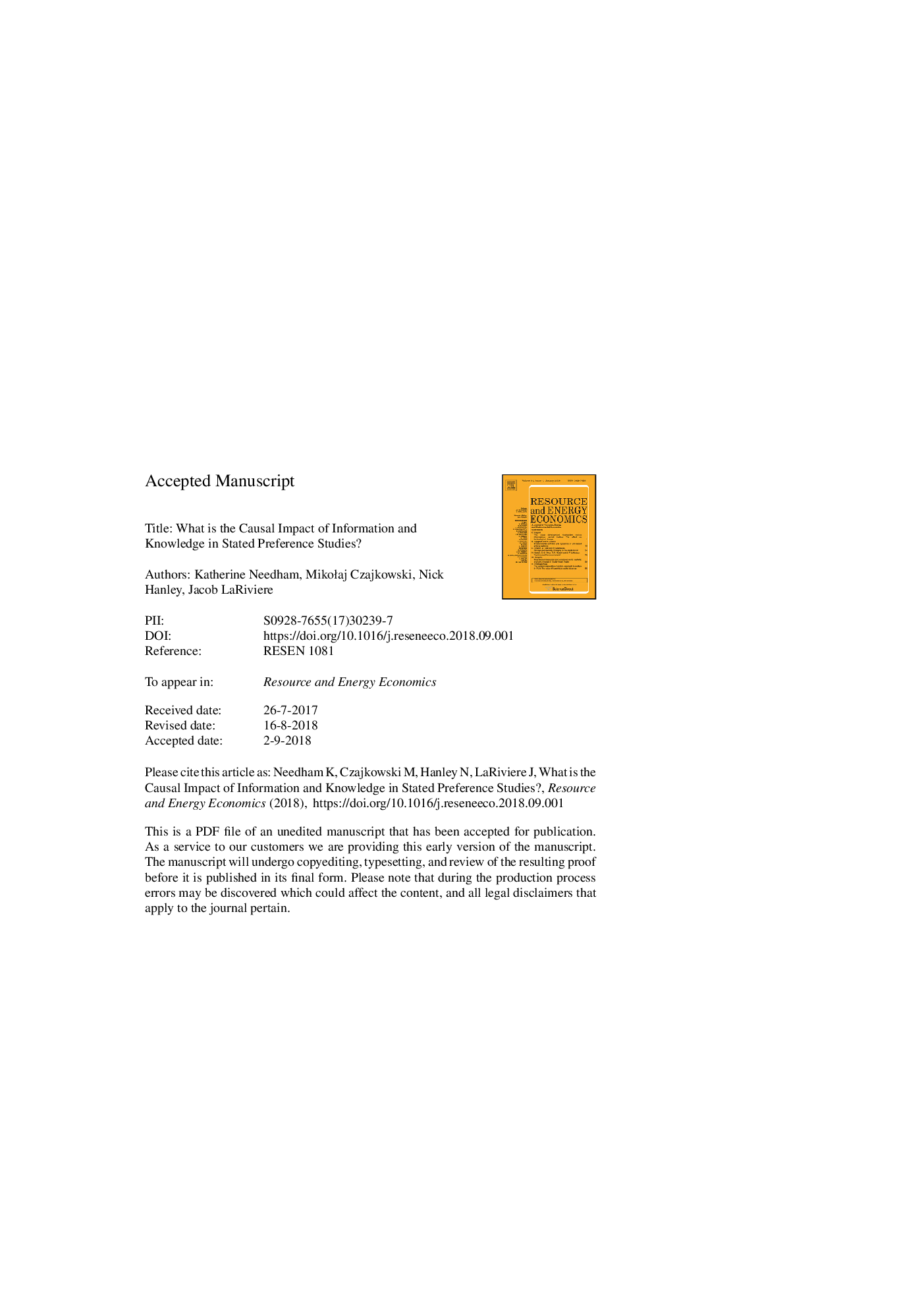| Article ID | Journal | Published Year | Pages | File Type |
|---|---|---|---|---|
| 11004942 | Resource and Energy Economics | 2018 | 56 Pages |
Abstract
This paper reports the results of a stated preference experiment designed to test how information about a good's attributes provided in a survey affects knowledge, and how knowledge affects preferences for that good. A novel experimental design allows us to elicit subjects' ex ante knowledge levels about a public good's attributes, exogenously vary how much new objective information about these attributes we provide to subjects, elicit subjects' valuation for the good, and elicit posterior knowledge states about the same attributes. We find evidence of incomplete learning and fatigue: as subjects are told more information, their marginal learning rates decrease. Consistent with previous work, ex ante knowledge does affect stated willingness to pay. However, we find no significant marginal impact of knowledge on the mean nor the variance of willingness to pay for changes in the environmental good conditional on ex ante knowledge. Our results are consistent with a number of conceptual models of information processing and preferences, including confirmation bias, costly search, and timing differences in learning and preference formation.
Related Topics
Physical Sciences and Engineering
Energy
Energy (General)
Authors
Katherine Needham, MikoÅaj Czajkowski, Nick Hanley, Jacob LaRiviere,
